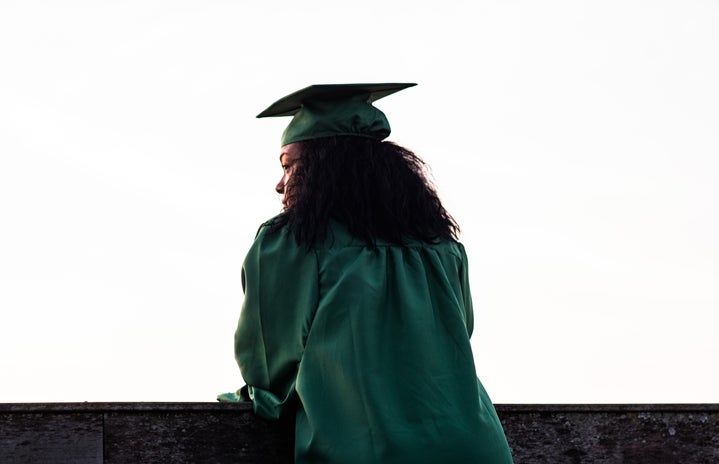One of my most toxic traits (that affects me, not so much others) is my tendency to get caught up in reminiscing about the past or yearning for the future. I have very vivid (and hopefully authentic) memories of my early childhood, and with the world now looking very different than it did in the years where I still had on the most rose-tinted of glasses, it’s hard not to get wrapped up in the nostalgia of a time before ubiquitous technology, climate change, systemic and localized racism, and other seemingly insurmountable challenges were on my radar.
Similarly, as I am in the second semester of my final year of college, I find myself antsy to know how my life will turn out. The only major life transition I don’t remember wishing would hurry up because I thought it would bring me happiness is the one from elementary school to middle school. Since then, every imminent, big change has left me feeling impatient and checked out of my present circumstances. Instead of existing in the uncertainty and relishing the fact that I face relatively little restriction in the paths I could take, I want to fast forward to a time when I’m firmly set in a career I enjoy, with a consistent community around me, in a location that I plan to stay in for the foreseeable future.
As much anxiety as I have around becoming a “real adult” (No more dividing my life into semesters! No more living in on-campus housing! How do I make a budget?), I have recently found myself wishing away my final months as an undergraduate, especially at the end of the fall semester. Instead of working on my final exams, I scroll through TikTok in search of Day in the Life videos of people working in professions I’m considering and search Wayfair and Facebook Marketplace for furniture I might want to put in my future apartment, despite not knowing how soon after graduation I’ll move out of my parents’ house or where in the world said apartment will be located. I can recognize that my yearning for the future is a coping mechanism that allows me to ignore my more immediate stressors, but that doesn’t change the fact that I look back on times both good and bad and wish I could return to them.
For example, the pandemic hit during my freshman year of college, and I was on campus for not even a full twenty-four hours after returning from spring break before I was back in my parents’ house, which I would end up leaving only a handful of times over the next calendar year. Earlier this year, I found myself expressing a desire to return to pre-Covid college life to a friend from home before she reminded me that I was experiencing one of the worst depressive episodes of my life during that semester. I looked back on my time in lockdown with relative, privileged fondness, only remembering how miserable I was when I discovered rants in my Snapchat memories about how, like everyone else, I wanted to see my friends, hated Zoom class, and lived in constant fear of infection.
I’m no psychologist—I don’t understand the ways that our subconscious alters our memories or why it even occurs—but I know that staying in the present moment is one of the most important things I can do not just for my survival, but for my mental health. A lot of messaging around gratitude and meditation can feel ingenuine or unattainable, but I don’t want my attempts at remaining present to fit in a specific mold created by somebody else. I just want to enjoy my positive experiences and recognize that my negative ones won’t last forever.
As the days until graduation approach, I hope to engage in campus in ways I haven’t before. It’s a tricky time to forge new relationships, but I at least hope to deepen the ones I already have. And more than anything, I want to look back on this time with an accurate sense of how it was, whether good, bad, or neutral.


